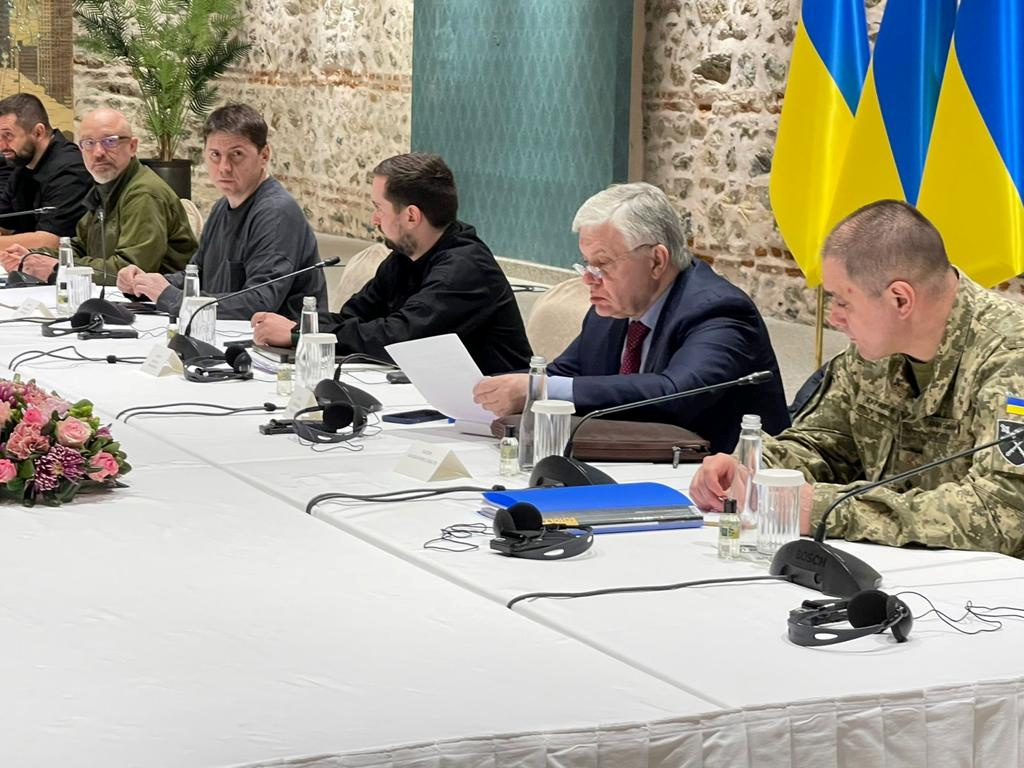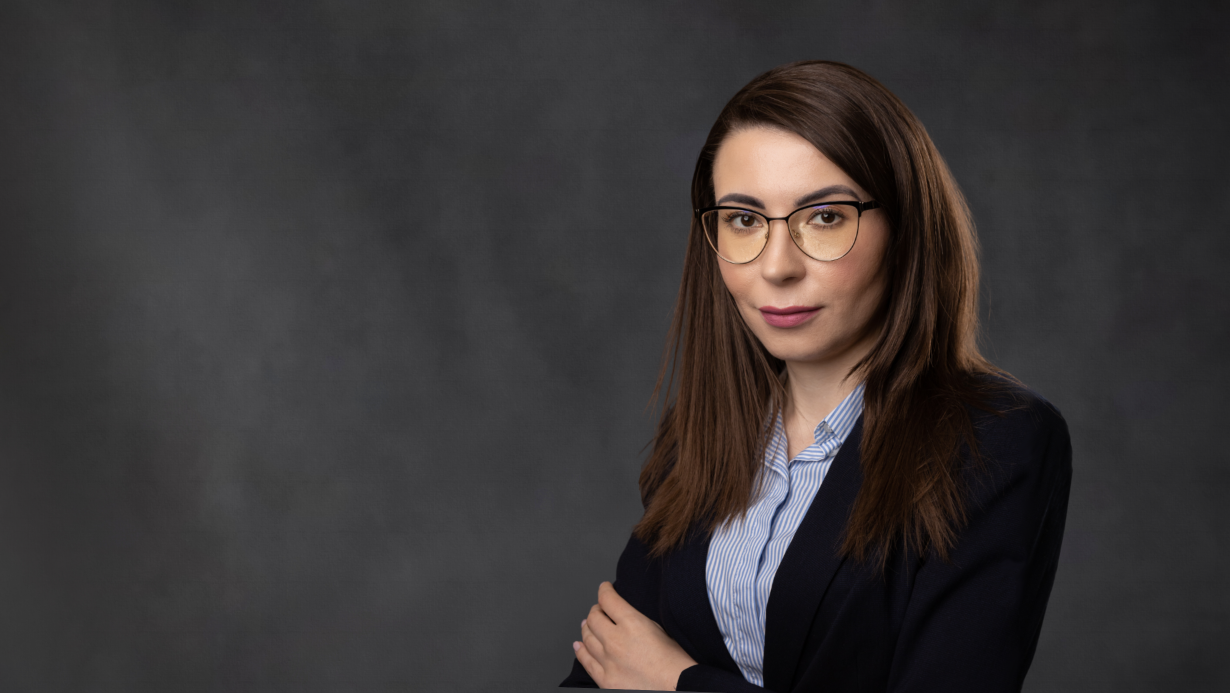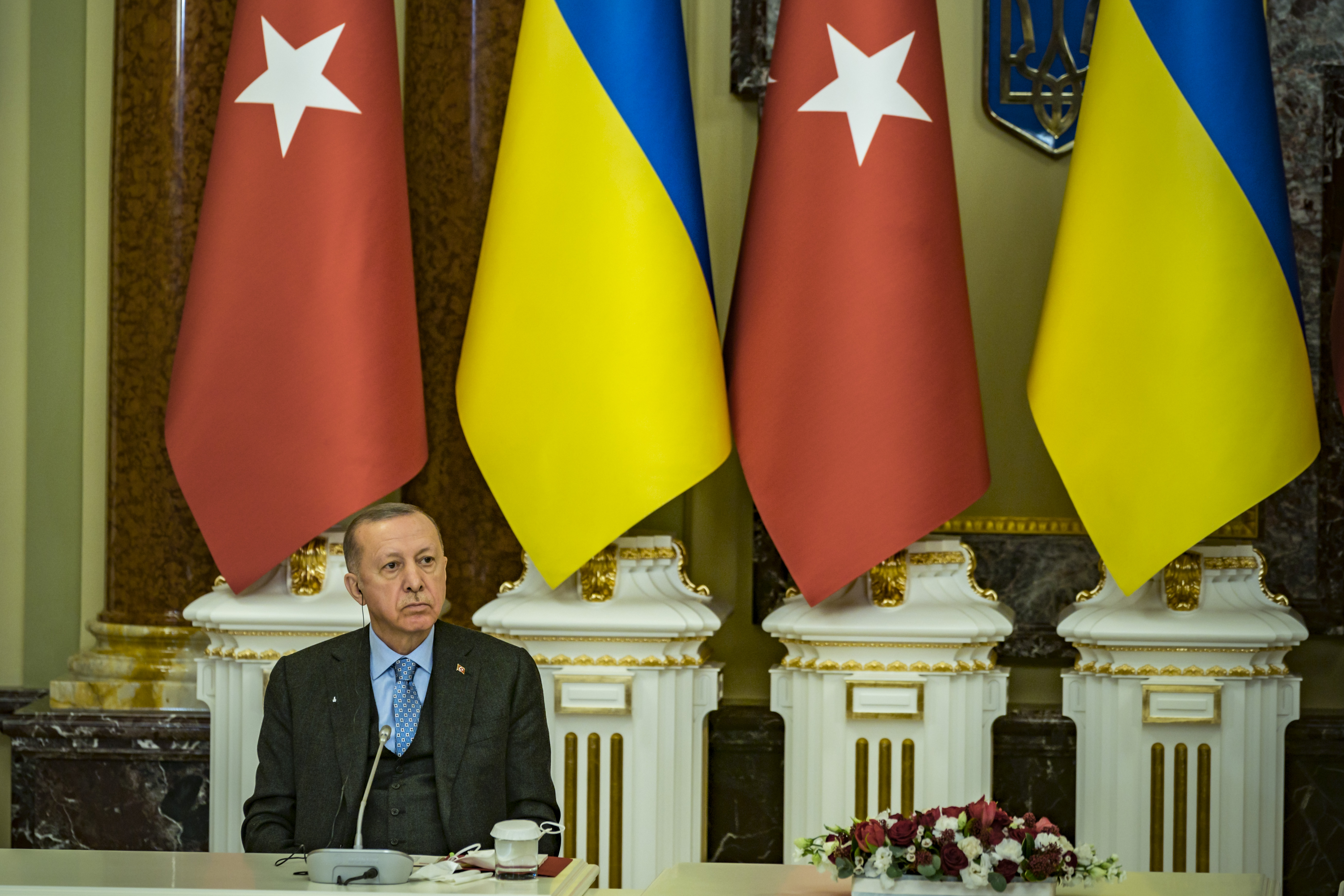Turkey's Role in the Russian-Ukrainian Negotiations
The Russian-Ukrainian negotiations held on 29 March in Istanbul demonstrates that Turkey is assuming the role of an intermediary. Its policy of balancing between Russia and Ukraine is backed by the majority of the Turkish public, which gives President Recep Tayyip Erdoğan more freedom to manoeuvre. Acting as an intermediary in the conflict may allow Turkey an opportunity to start improving the strained relations with the European Union and the United States.
 UKRAINIAN PRESIDENTIAL PRESS SER / Reuters/ FORUM
UKRAINIAN PRESIDENTIAL PRESS SER / Reuters/ FORUM
The Negotiations in Istanbul
The talks were preceded by a meeting of the foreign ministers of Russia, Ukraine, and Turkey on the sidelines of the Diplomacy Forum in Antalya on 10 March. Thanks to the trust in Turkey at that time, the meeting on 29 March provided a better space for talks about the terms of a truce than the talks in Belarus, where the atmosphere was clearly pro-Russian. The Ukrainian side again stated that it wanted protection mechanisms similar to Article 5 of the North Atlantic Treaty from the guarantors of the future agreement, while the Russian side declared it would limit military operations in Kyiv and Chernihiv, which was confirmed by the subsequent withdrawal of troops. At this stage, Turkey was not acting as a mediator but as an intermediary in the negotiations. However, it expressed its readiness to provide “necessary support” to the parties for as long as they needed it. On 31 March, Foreign Minister Mevlüt Çavuşoğlu suggested in an interview with Turkish TV station A Haber that the next stage of Turkish involvement may be the organisation of a meeting at a higher level.
Turkey’s Goals and Interests. The country’s role as intermediary in the conflict stems from its attitude towards the Russian aggression against Ukraine. Turkey is trying to remain impartial, with President Erdoğan emphasising that Turkey is neither turning away from Ukraine, nor is it abandoning its ties with Russia. Thanks to this position, the Turkish authorities aim for cooperation with both countries and to improve relations with the West, thus re-gaining public support in the country. Turkey’s main goal is to strive for stability in the Black Sea region, described as “the key to Euro-Atlantic security”. On 28 February, Turkey decided to implement restrictions under the Montreux Convention, which regulates stability and security in the Black Sea region. With this decision, Turkey is trying to make itself credible in the eyes of the West and to repair the reputational damage resulting from its confrontational foreign policy of recent years. Turkey wants to maintain good relations with Ukraine, which is associated with historical and cultural ties with the Tatar minority, cooperation in the defence industry (including the production of turbine engines and the sale of combat drones, the effectiveness of which in this war has bolstered the Turkish brand globally) and economic ties following the signing of a free trade agreement in early February, before the war broke out.
For Turkey, maintaining close relations with Russia is necessary in part because of the construction of the Akkuyu Nuclear Power Plant in southern Turkey by Russian state firm Rosatom, natural gas supplies from Russia (in 2020, it amounted to 33.6% of the Turkish demand), and the acquisition by the Turkish armed forces of a Russian S-400 system. Tourism is also important, with Russians the largest group of foreign visitors to Turkey in 2021 (about 4.7 million). Russia is the main foreign market for Turkish construction companies, with a 19.6% share in 2018. Despite being on opposite sides in Libya and the South Caucasus, the most important factor from the Turkish authorities’ point of view is maintaining the status quo and sharing influence in Syria with Russia. The states conduct joint military patrols in Syria, for example, on the M4 motorway that crosses the province of Idlib. All this means that Turkey has not joined the sanctions imposed on Russia or the rhetoric against Vladimir Putin.
The policy of balance enjoys the approval of the Turkish public, as confirmed by recent public opinion polls. According to a MetroPOLL survey from March, over 70% of citizens believe that Turkey should remain impartial in the conflict between Russia and Ukraine. The dominant belief is that NATO and the U.S. are responsible for the situation in Ukraine. At the same time, voters of the ruling AKP (unlike the opposition) more often indicate that foreign policy should be oriented more towards Russia and China than the EU and the U.S. Therefore, the ruling party cannot risk adopting a confrontational policy towards Russia ahead of the parliamentary and presidential elections in 2023. Turkish pro-government media use the negotiations in Istanbul to create a belief among the public about a global role for both Turkey and Erdoğan, describing it as a “personal victory”, and thus diverting attention from the country’s economic problems, mainly the high inflation. According to official government data (probably underestimated), the rate increased in March by 61.1%. Independent estimates are that it is even as high as 142.63%.
Ukraine and Russia on Turkey’s Role
Since the beginning of the Russian invasion, Turkey has undertaken humanitarian actions in Ukraine, including through the Turkish Red Crescent, by providing food, clothing, and medical and hygiene products. It has also engaged in diplomacy to facilitate efforts by the sides in the conflict to achieve a permanent ceasefire. Both Russia and Ukraine have responded positively to Turkey’s attempts.
Ukrainian President Volodymyr Zelensky described the Turkish president as “a true friend of Ukraine”. On 17 March, Ukraine's foreign minister, Dmytro Kuleba, said that he would like Turkey to be one of the guarantors of a possible peace agreement, while his Turkish counterpart was in Moscow pressing Russia to accept such an offer. This strengthened the importance of Turkey as an accepted and desired host for the talks, at the expense of other countries that aspire to this role, including Belarus, Switzerland, France, South Africa, and Israel. The Ukrainian side accepted Turkey because of its membership of NATO, as well as the consistent support of Turkish decision-makers for Ukraine’s territorial integrity and the strategic partnership between the states.
The Russians agreed on Turkey having a mediating role because Russian oligarchs can continue their activities with the consent of the Turkish authorities “as long as they abide by national and international law”. Russia does not want further rapprochement between Turkey and its Western partners as this would inevitably involve NATO consolidation and greater sanctions against Putin’s elite circles. Russia also hopes that Turkey will not support new offensives in Syria or Nagorno-Karabakh that would endanger its allies.
Conclusions and Perspectives
Although the talks in Istanbul on 29 March brought progress in bringing the sides’ positions closer together, the discovery of evidence of mass crimes committed by Russian soldiers on Ukrainian civilians in Bucha and elsewhere, will delay the resumption of the negotiations. Despite these difficulties, as well as the probable temporary freezing of the dialogue in connection with Russia’s re-invasion of Donbas, Turkey is still the most likely place for possible further direct Russian-Ukrainian talks. At the present stage, the Turkish authorities have not abandoned diplomatic actions aimed at bringing the presidents of Russia and Ukraine to meet.
The approach adopted by Turkish diplomacy based on Russia and Ukraine maintaining confidence in Turkey without siding with one over the other will be continued. It may be beneficial for Turkey to, for example, attempt to organise evacuations of Mariupol residents by sea, which it has declared its readiness to do but lacks Russia’s permission for transit through the Kerch Strait.
In the long run, Turkey’s ambiguous position may be both an opportunity and a challenge for the West. On the one hand, the peace negotiations in Istanbul shows that the Turks are trying to play a constructive role and to repair the reputational damage resulting from the confrontational foreign policy of recent years by, for example, simultaneously striving to normalise relations with Armenia. The EU and the U.S. can use Turkey’s good relations with Russia and Ukraine to try to influence the peace negotiations. On the other hand, the Turkish policy of balancing between Russia and Ukraine may prove a challenge to NATO cohesion. This may happen if the Turks decide to take on a mediating role in the conflict as a means of forging another tactical alliance with Russia and putting pressure on the U.S. to lift sanctions on the Turkish defence industry and on the EU to accelerate the modernisation of the customs union or to act on visa liberalisation.




